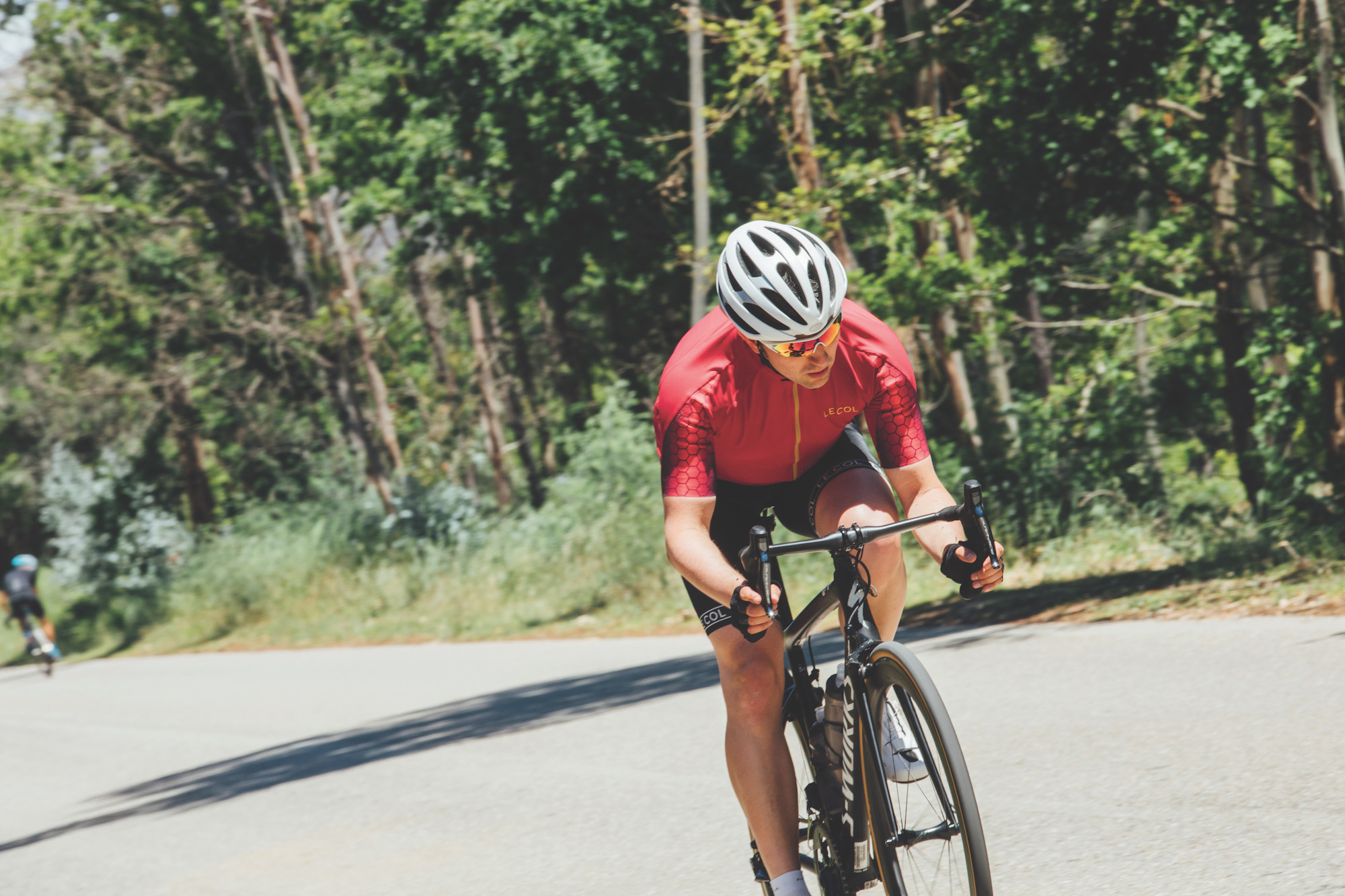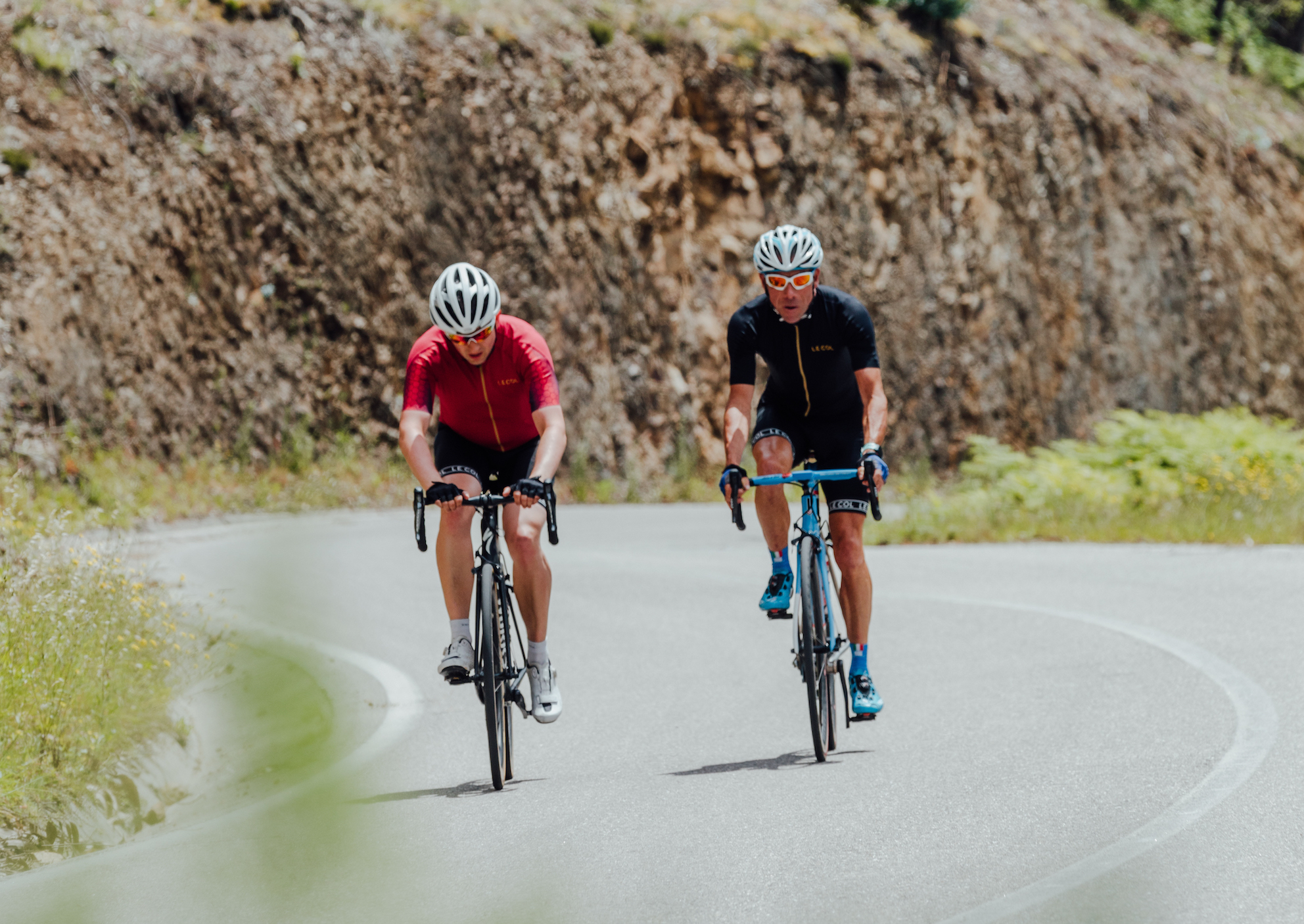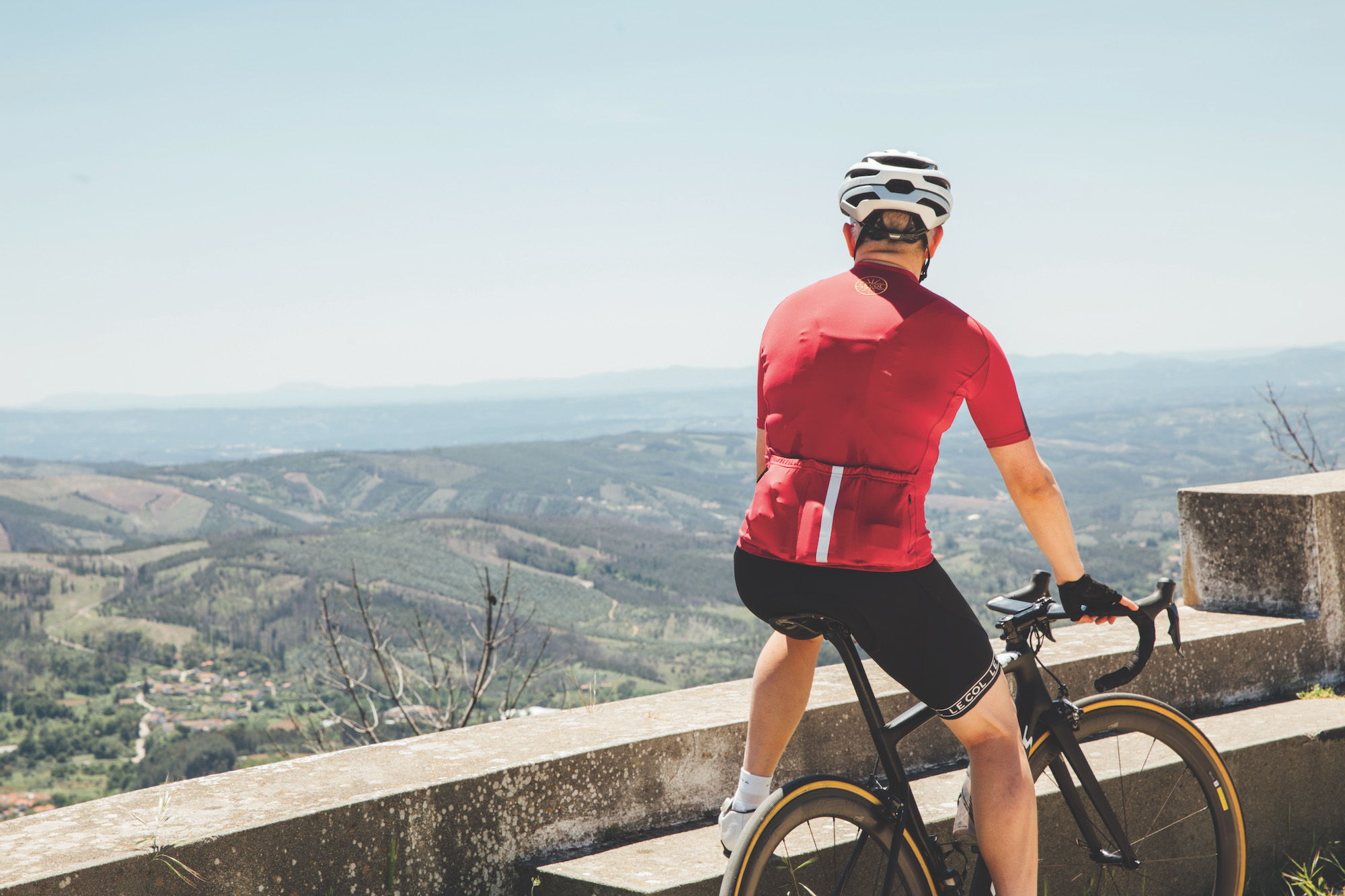No gateaux, no plateau? How to shift those final few kilos
Well on his way to getting back in shape, CW's Vern Pitt found himself on a weight loss plateau as progress ground to a halt. What does it take to shift those stubborn final few kilos?

The latest race content, interviews, features, reviews and expert buying guides, direct to your inbox!
You are now subscribed
Your newsletter sign-up was successful
Cyclists are usually quite fond of a plateau. It allows us to tap along, control our effort and maybe make the most of drafting in a group. But when it comes to losing weight, reaching a plateau is frustrating and demotivating. It’s something I’ve experienced myself lately, and frankly I’ve struggled to move past it.
>>> Subscriptions deals for Cycling Weekly magazine
Having shed three stone over six months, I bottomed out 12lb (5.5kg) short of my target weight of 11st (70kg). Nothing had changed: I was still following the same plan, gradually reducing my calories as I got lighter and keeping up a regular regime of riding - some of it intense, some of it steady. But losing the pounds was becoming tougher, and under that pressure I began to lose hope. I was already eating less - much less cake - and exercising regularly. What more could I do?
What I didn’t know at the time was that hitting a plateau is not just common, but normal and predictable. "There’s a good scientific basis for it," says nutritionist David Starr, who works with a variety of pro and amateur riders. "When your body is just running normally, it’s in homeostasis, with set points for how much fat you’re carrying. Your body gets used to that. So when you then drop below it, it will accept a certain amount of weight loss and then start to panic that you’ve lost too much weight."
>>> Cycling Weekly is available on your Smart phone, tablet and desktop
The body has evolved to be a little bit paranoid about starvation, which in these times of plenty isn’t very helpful.
"It can’t force you to eat any more," Starr continues. "It might make you hungry, but it can’t force calories in. So instead it starts to shut down non-essential functions."
The latest race content, interviews, features, reviews and expert buying guides, direct to your inbox!
This can include reproductive function or even maintaining your bones properly — and while that might sound like the kind of thing that would only happen when you’re literally starving, Starr says it can begin surprisingly early. If you find yourself on a plateau, Starr’s advice is to stay there for four to six weeks. Take a break from your weight loss regime, let your body rest and then go again.The first part of resuming weight loss is making sure your diet is still suitable and contains the right amount of calories.
Your daily needs
"The more you lose, the less energy you’ll need," says Paul Hough, sport and exercise scientist at St Mary’s University. Your basal metabolic rate - the calories you need for your day-to-day existence - should be your guide here; the simplest way is to use an online calculator.
Hough and his team offer more substantial personal assessments to find your basal metabolic rate, based on a lab test, for around £100.
"When you’ve lost a substantial amount of weight and only have a general idea of what your resting metabolic rate is, you may hit a plateau, and that can be difficult to move beyond," he explains.
The leaner you get, the smaller the margin for error in calculating your basal rate - that’s where a lab test can prove useful. "It takes out some of the error that is associated with using the equation,"
adds Hough.
Being too lean probably isn’t the root of my own troubles - stop giggling at the back - so rather than taking the lab test, I chose to re-examine my diet.
"Make sure you keep your protein high," urges Starr. "For pro riders, I recommend two grams of protein per kilogram of body weight per day. It is actually quite tricky to eat that much; it’s going to make up probably a quarter of your calories."
Why increase my protein?

"It makes sure you’re providing all the basic building blocks for not just your muscles, but also for your hormones, for your enzymes, all these digestive things that you actually need."
Alongside his emphasis on protein, Starr cautions against cutting carbohydrate too much, as reducing calories too greatly can endanger your bone health. One thing definitely can be cut: "If you’re going to try and lose weight, the first thing to cut is gels and powders," says Starr. "Eat foods with high nutrient density - you should be trying to get as much out of each mouthful of food as you can, and that means whole grains, fruit and veg and lean meats."
Now that’s sorted, there is the question of getting the motivation back and getting your head in the game. Understanding the nutrition is fairly simple in comparison with understanding the behaviours and practices that lead you to being overweight in the first place - such as distracted eating and how you deal with cravings. It’s usually these habits and foibles that stop you from achieving your weight loss goals.
Sheila Granger is a hypnotherapist and author of the bestselling book on hypnotherapy and weight loss No More Diets. While I remain skeptical about hypnotherapy - there being no clear scientific explanation for how it works - Granger’s advice is intriguing, and clearly grounded in psychotherapy: "Just eat less and exercise more, is what people often say, but if we could all do that, we’d all be doing it already," she says. "A lot of the time, our eating habits come right from childhood. People tell me they were told, 'Don’t leave food'."
Before an unhealthy relationship with food develops, we’re all equal.
"A baby cries when it’s hungry, and when it’s had enough, it stops eating - it doesn’t think, ‘I’ve had a really bad day, I deserve to eat something’. It just has what it needs. So we’ve almost lost our natural abilities because of the way that we think."
Granger argues that we need to rebuild the foundations of our own control and that hypnosis helps bring this into consciousness control, rather than relying on ingrained patterns. She likens it to the psychological techniques cyclists might use to get ‘in the zone’ before a big race or to psyche yourself up for a hard training session, instead applying them to diet and eating habits.
Hard target

On a practical level, Granger adds that getting stuck on a weight plateau might be because you’ve hit where you wanted to be already, in terms of appearance if not hard numbers. She gets some of her clients, at the start of the process, to buy some clothes they would want to get into - and if they are able to fit into them before they’ve hit their target weight, that is often the point where their weight plateaus, meaning the goal needs to be readjusted.
In cycling, it might not be a particular size of clothes but instead a time up a climb or a particular performance in a race. If everything else is going well apart from your weight plateau, it might be worth reconsidering your priorities and motivations to lose those extra pounds. All of this can be achieved without hypnosis, of course, but Granger argues that undergoing hypnotherapy makes the changes required easier. It’s a matter of personal choice.
Getting off the plateau might not be as easy as simply giving up the gateaux. But with some subtle adjustments, knowing where you’re going and some psychological tricks to work with, it’s quite possible to restore good habits and regain your weight loss momentum. Will it work for me? Watch this space.
This feature originally appeared in the print edition of Cycling Weekly, on sale in newsagents and supermarkets, priced £3.25.
Having trained as a journalist at Cardiff University I spent eight years working as a business journalist covering everything from social care, to construction to the legal profession and riding my bike at the weekends and evenings. When a friend told me Cycling Weekly was looking for a news editor, I didn't give myself much chance of landing the role, but I did and joined the publication in 2016. Since then I've covered Tours de France, World Championships, hour records, spring classics and races in the Middle East. On top of that, since becoming features editor in 2017 I've also been lucky enough to get myself sent to ride my bike for magazine pieces in Portugal and across the UK. They've all been fun but I have an enduring passion for covering the national track championships. It might not be the most glamorous but it's got a real community feeling to it.